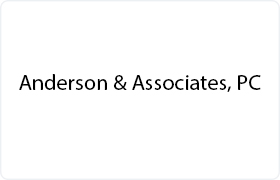Moyock Bankruptcy & Debt Lawyer, North Carolina
Sponsored Law Firm
-
 x
x

Click For More Info:
-
Anderson & Associates, PC
905 Halstead Blvd, Unit 6, Elizabeth City, NC 27908» view mapBankruptcy & Debt Law We're Here to Help
The Law office of Anderson & Associates will aggressively represent your interests to obtain any and all relief.
800-217-0430
John G Trimpi
Real Estate, Corporate, Bankruptcy, Personal Injury
Status: In Good Standing Licensed: 52 Years
John C. Graham
Traffic, Civil & Human Rights, Business, Bankruptcy & Debt
Status: In Good Standing Licensed: 39 Years
Roy Archbell
Construction, Corporate, Collection, Accident & Injury
Status: Inactive Licensed: 50 Years
Paul F. Winborne
Lawsuit & Dispute, Divorce & Family Law, Bankruptcy & Debt
Status: In Good Standing Licensed: 37 Years
Laura Forehand Meads
Divorce & Family Law, Estate, Bankruptcy & Debt, Motor Vehicle, DUI-DWI
Status: In Good Standing
 Tim Anderson Virginia Beach, VA
Tim Anderson Virginia Beach, VA AboutAnderson & Associates, PC
AboutAnderson & Associates, PC Practice AreasExpertise
Practice AreasExpertise
